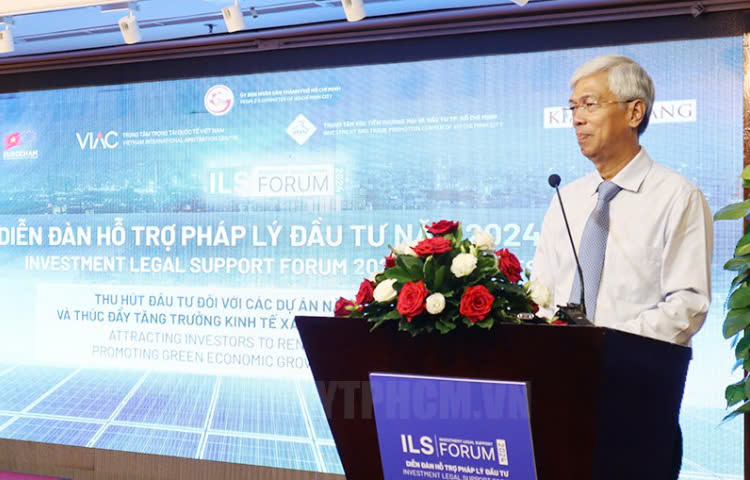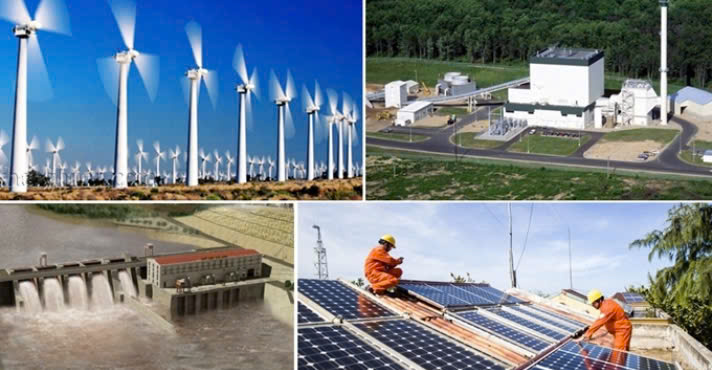On September 20th, at the Forum on Legal Support for Investment in Renewable Energy Projects, Mr. Võ Văn Hoan, Vice Chairman of the Ho Chi Minh City People's Committee, presented the city's plan to develop a renewable energy industry. The idea of advancing such a novel sector as renewable energy in a major urban center like Ho Chi Minh City may seem unfamiliar, but according to Mr. Hoan, it represents a highly promising opportunity. This is also one of the key strategies included in the city's overall socio-economic development plan for the coming years.

Ho Chi Minh City is entering a phase of deep green transition, with the goal of reforming various sectors, from manufacturing and labor to finance and, most importantly, energy. Mr. Hoan emphasized that energy transition is not just a supporting factor but a crucial key to ensuring the success of the city's industrial modernization and economic development.
According to Mrs. Nguyễn Thị Kim Ngọc, Deputy Director of the Department of Industry and Trade of Ho Chi Minh City, the city consumed approximately 28.5 billion kWh of electricity last year, accounting for 15% of the country’s total electricity consumption. Despite the city's rich network of rivers, it has very limited potential for hydropower development. Furthermore, coal-fired power faces challenges due to strict environmental protection requirements. In this context, renewable energy is seen as the optimal and most logical solution for the city's sustainable development.
Among the renewable energy projects, the most notable are two offshore wind power projects in Cần Giờ, which Ho Chi Minh City is proposing to implement. One project has a capacity of 2,000 MW, divided into two phases, while the other has a capacity of 6,000 MW. These two plants will not only contribute power to the national grid but will also aim to produce green hydrogen – a clean energy source that is gaining significant interest globally.

In addition, the city is actively exploring the potential of solar power, with plans to develop 166 MW of rooftop solar power in government buildings under Resolution 98. Additionally, the city is submitting a proposal to the Ministry of Industry and Trade to develop biomass energy and waste-to-energy projects with a projected capacity of 340 MW by 2030. Five waste-to-energy plants are also in the planning stages and are expected to be implemented soon.
However, the development of these projects is not without challenges. Experts at the forum offered several important recommendations. Dr. Lê Nết, Arbitrator of the Vietnam International Arbitration Center (VIAC), stressed that the allocation of 166 MW of rooftop solar power for Ho Chi Minh City is still low, insufficient to meet the rapidly growing demand for clean energy. He also pointed out several complex issues related to actual implementation, such as clarifying the ownership of public building rooftops, dividing responsibilities among project participants, and the operational mechanisms for renewable energy projects.
In addition to these comments, several experts also suggested that Ho Chi Minh City should study and adopt successful renewable energy investment models from other countries, such as Singapore's SolarNova model or India’s Resco model. Both models have demonstrated high efficiency in optimizing management and attracting private investment in solar energy projects.
Vice Chairman Võ Văn Hoan candidly acknowledged that although there are already policies encouraging renewable energy development at the national level, such as Power Plan VIII, and at the local level through resolutions such as Resolution 98 and Resolution 09 of the Ho Chi Minh City People's Council, the realization of these policies still faces numerous challenges. Mr. Hoan emphasized the need for synchronization in terms of energy trading, transmission, and operation among individuals, organizations, and investors to further boost the development of renewable energy.
Finally, he called on the financial sector to step in, proposing preferential credit packages to encourage citizens and businesses to participate in the energy transition. This is seen as one of the key steps to creating momentum for the sustainable development of the renewable energy industry, contributing to Ho Chi Minh City's green transition, and thereby playing a positive role in the city’s economic and social modernization efforts.